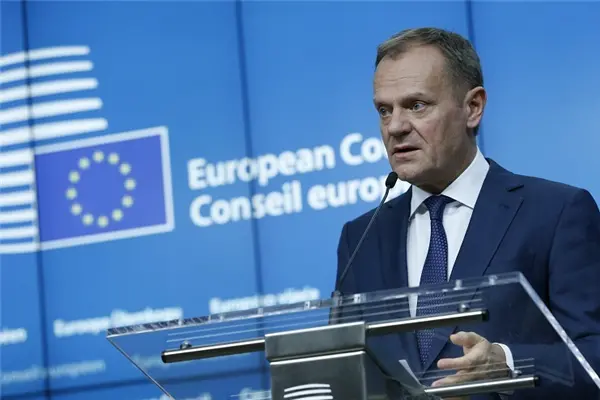The European Union (EU) is mulling over the choice to abolish its "non-market economy" list, on which China and 14 other countries are included, and set up a new "country-neutral" method to reform its anti-dumping and anti-subsidy legislation, it was announced Wednesday.
The decision was made after the European Commission held the second orientation debate on the treatment of China in anti-dumping investigations, as the 15-year-old "surrogate system" is set to expire in December.
"The colleagues have agreed to propose changes to the EU anti-dumping and anti-subsidy legislation with the introduction of a new anti-dumping methodology," said EU Trade Commissioner Cecilia Malmstrom in a press briefing.
"We are eliminating the existing list of non-market economy countries," Malmstrom told reporters. "This is a new method, it will be country-neutral and will be applied equally to all World Trade Organization (WTO)" members.
China would closely follow the relevant process and access it when the new method is more clear, said China's ministry of commerce Thursday in a statement.
EU PUTS "MARKET ECONOMY STATUS" ASIDE
The commissioners did not spend much time on determining whether China was a market economy or not, said European Commission Vice President Jyrki Katainen, who oversees the jobs, growth, investment and competitiveness dossier.
"Because it is not an issue at the moment at all," he said, adding that people shouldn't focus on "market economy status" because it does not exist anymore.
The EU has two lists for countries (economies) for calculating in anti-dumping cases, one with market economy status countries and the other with countries which are regarded as "non-market economies", and the dumping margins are measured in two ways.
For Chinese imports, as China is on the "non-market economies" list, the EU could compare prices with that of a third country, or a surrogate country, instead of Chinese domestic prices, to conclude whether Chinese products are dumped in the EU. But this method, according to WTO rules, will expire on Dec. 11.
Chinese leaders have repeatedly urged the European side to carry out its commitments in a WTO agreement and drop the surrogate country system as scheduled.
In a China-EU summit in Beijing last week, European Commission President Jean-Claude Juncker said the EU would fulfill its international commitments.
"We are willing to fulfill our legal obligations and it means we change the way we calculate dumping and subsidy cases," Katainen again stressed.
Besides China, other countries on the EU's "non-market economies" list include Vietnam, Kazakhstan, Albania, Armenia, Azerbaijan, Belarus, Georgia, the Democratic People's Republic of Korea, Kyrgyzstan, Moldova, Mongolia, Tajikistan, Turkmenistan, and Uzbekistan.
EU AIMS TO STRENGTHEN TRADE DEFENSE
The EU seeks to further strengthen its trade defense instruments in the new methodology by speeding up the anti-dumping and anti-subsidy procedures, and imposing as least the same, or even higher duties in certain circumstances.
"We want to make our anti-dumping cases even shorter from nine to seven months, and we want to have the possibility in certain very specify cases to suspend the lesser duty rule," Katainen said.
In this way, Brussels is gearing up to the American approach toward Chinese imports which allowed Washington to impose heavy duties.
The measures are not brand new though as some of them were proposed by the Commission back in 2013. Since then, EU member states have divided on whether to adopt it.
Brussels will push hard to find compromise within member states on the package of trade defense instruments launched three years ago, Katainen said.
Meanwhile, the issue of overcapacity will be addressed in the EU's new methodology. Katainen signaled that overcapacity in a third country would be faced with tough regulations in the EU.
WILL IT BE A REAL CHANGE?
EU officials claimed the new method would mark a "huge change" to the bloc's anti-dumping and anti-subsidy laws and would have to shoulder the burden to prove there is "market distortion" in its future investigations on a case-by-case basis.
But experts cautioned whether there would be any real change, particularly as Malmstrom said the new methodology would take into account "international prices."
Observers pointed out the expiry rule stated clearly that future anti-dumping cases should not make comparison with prices or costs not in China.
The Commission will not present the new method as its official proposal to the European Council and the European Parliament as it needs further discussion. Again, Katainen said the final proposal on how to deal with China's treatment in anti-dumping cases would only be presented later this year.
The Chinese ministry of commerce reiterated that WTO members should end the surrogate country practice against China in anti-dumping cases after Dec. 11.
All WTO members should comply with their international obligations, the ministry said. "It does not depend on any member' s domestic standards and has nothing to do with any other issues including overcapacity."
(APD)
 简体中文
简体中文

